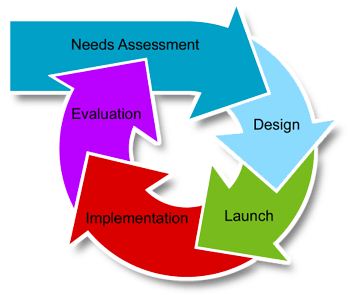Kinship Care, Foster Care and Adoption
Overview – Out of Home Care
Out-of-home care encompasses the placements and services provided to children and families when children must be removed from their homes because of child safety concerns, as a result of serious parent-child conflict, or to treat serious physical or behavioral health conditions which cannot be addressed within the family.
Before a decision is made to remove a child, child welfare staff must make reasonable efforts to safely maintain children with their families, including providing necessary supports and services. These services are often called family preservation or in-home services and are provided by child protective services staff, community agencies, or both. Courts must approve all decisions to remove children from their homes to ensure reasonable efforts were made.
Children in out-of-home care may live in a number of possible settings. These include kinship or relatives' homes, family foster homes, treatment foster homes, or group or residential care. Many communities use the phrase "foster care" to refer to this array of placements. In others, "foster care" refers to care in a family home, while "out-of-home care" encompasses all placement options.
While in out-of-home care, children are usually in the legal custody of the State. Shelter and daily care are provided by foster or kinship families or residential/group home staff. These caregivers generally undergo an assessment and licensing or certification process to ensure their suitability as caretakers. Foster and kinship families, if licensed, receive supportive services and monthly payments to assist them in caring for the children.
While in out-of-home care, children and their parents or other family members receive services. These are designed to provide support and safety for the child and to ameliorate the problems that led to the placement. Out-of-home care is intended to be temporary-the goal is to return children home as soon as possible or achieve permanency with another permanent family when this is not possible. Many of the services provided to children in out-of-home care and their families are targeted to achieving the goal of permanency.
Documents on this page may need Adobe Reader 
(Children’s Bureau website)
|
NRC4Tribes Needs Assessment Findings: Kinship, Foster Care and Adoption
Tribal Kinship, Foster Care, and Adoption issues were one of the five overarching themes or topic areas identified through the NRC4Tribes Needs Assessment Findings - Executive Summary and complete NRC4Tribes Needs Assessment Findings. Kinship, Foster Care and Adoption describes the needs of tribal kinship care, foster care, and adoption programs along with funding, recruitment, licensing, and training matters. |
|
|
Kinship Care Resources |
 |
NRC4Tribes Technical Assistance Needs Assessment: Tribal Foster Care and Adoption |
|
|
Guardianship Resources |
|
Frequently Asked Questions (FAQs) concerning Kinship, Foster Care and Adoption |
|
|
Foster Care Resources, including Youth Issues |
|
Fostering Connections website resources concerning Tribal Foster Care and Adoption |
|
|
Adoption and Permanency Resources |
|
Bureau of Indian Affairs resources concerning Tribal Foster Care and Adoption |
|
|
Tribal Customary Adoption Resources |
|
Child and Family Well-Being Resources |
National Resource Centers focusing on Foster Care and Adoption
The following National Resource Centers (NRCs) focus upon specific areas of Foster Care and Adoption. The purpose of these NRCs – members of the Children's Bureau T/TA Network - is to build the capacity of State, local, Tribal, and other publicly administered or publicly supported child welfare agencies and family and juvenile courts through the provision of training, technical assistance, research, and consultation on the full array of Federal requirements administered by the Children's Bureau [CB link]. The NRCs have developed a Statement on how the Children's Bureau National Resource Centers (NRCs) work with American Indian/Alaska Native Nations
 |
National Resource Center for Permanency and Family Connections |
 |
National Resource Center for Adoption |
 |
National Resource Center for Recruitment and Retention of Foster and Adoptive Parents at AdoptUSKids |